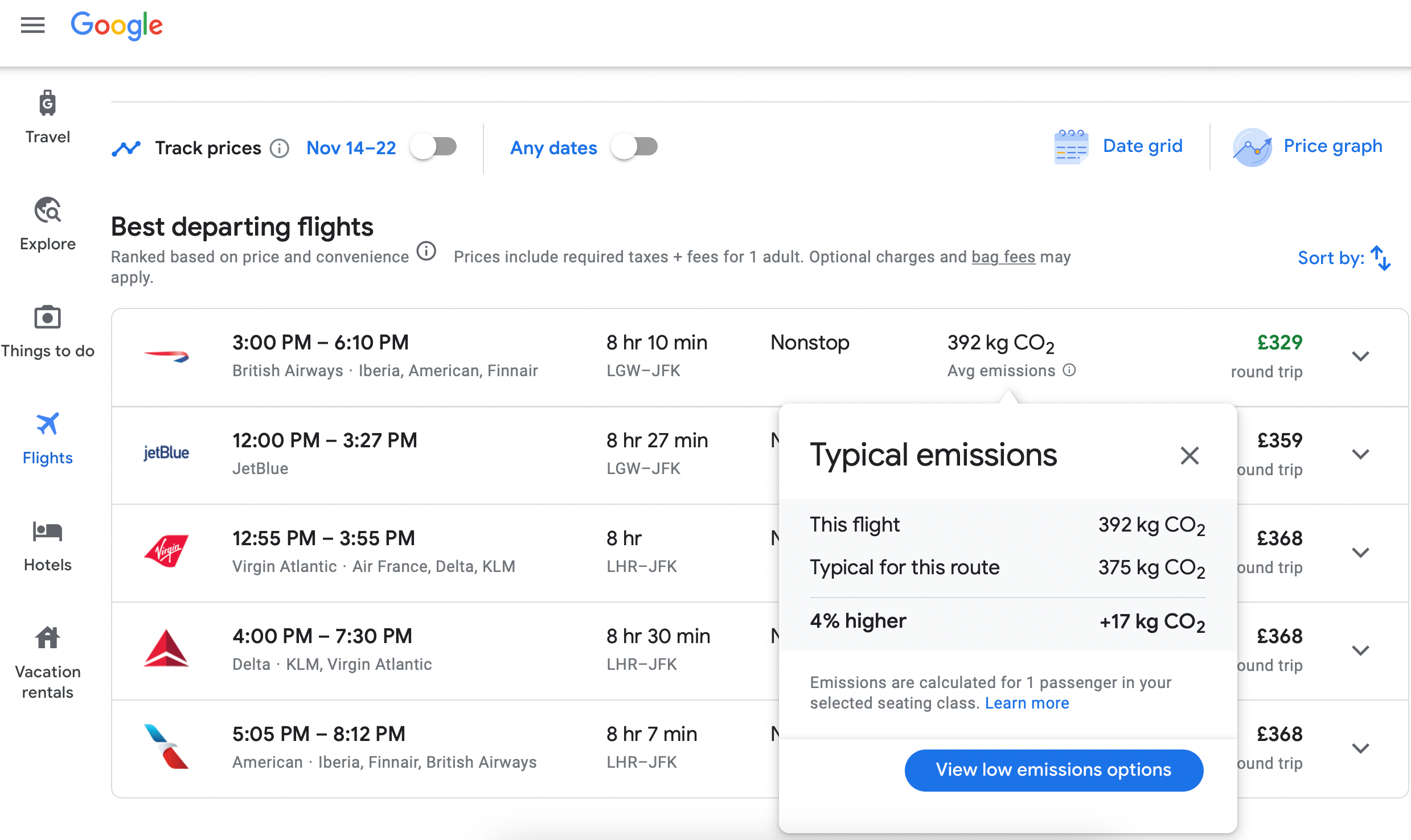
Google has “airbrushed” the climate impact of flying by changing its carbon calculator for flights, campaigners have said.
Google Flights allows people to search for the best flights and fares. Since October 2021, it has also calculated the amount of carbon emitted during planes’ journeys so that users can compare different airlines.
But, since July 2022, Google has started excluded all the global warming impacts of flights except for CO2 emissions, Greenpeace said.
Scientists say that another way flying impacts the environment is through the production of contrails – long thin clouds that trap heat in the atmosphere.
They are created when hydrogen from plane fuel mixes with oxygen before freezing.
After Google’s change to its calculator, which it said was made after consulting its “industry partners”, the flights that come up on its listings appear to have a much lower environmental impact than they did before.
Dr Doug Parr, the chief scientist of Greenpeace, told the BBC: “Google has airbrushed a huge chunk of the aviation industry’s climate impacts from its pages.”

Google’s calculations now represent just over half of the real impact flights have on the climate, Professor David Lee of Manchester Metropolitan University told the broadcaster.
Prof Lee, who has authored a leading scientific study assessing air travel’s impact on global warming also said: “It now significantly understates the global impact of aviation on the climate.”
Google told the BBC it “strongly believes” that non-CO2 effects of aviation should be included in its calculations but that its priority is the “accuracy of the individual flight estimates” it provides to users of its search engine.
It said that it’s working with academics to better understand how contrails and other factors affect specific flights.
The Independent has contacted Google for comment.
Contrails have a more damaging effect on the climate than all the CO2 emitted from plane engines, a study from 2019 claims.
Researchers have said that the relative increase in warming caused by contrails will be greater than that of CO2 because planes will become more fuel efficient.
The Institute of Atmospheric Physics (IAP) in Germany found in its research that the problem posed by contrails is set to triple by 2050.
Lead author Lisa Bock said: “It is important to recognise the significant impact of non-CO2 emissions, such as contrail cirrus, on climate and to take those effects into consideration.”
Corsia – the UN’s scheme to offset plane CO2 emissions from 2020 – also ignores the non-CO2 climate impacts of aviation.







